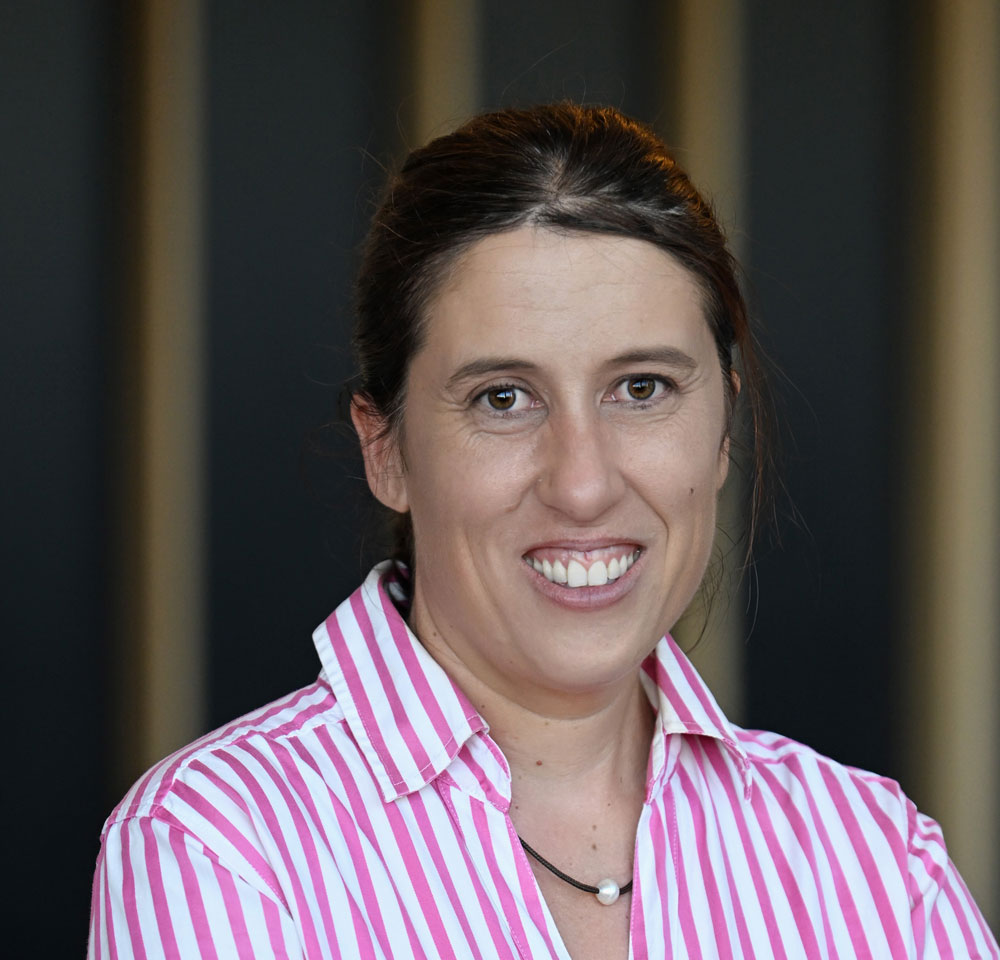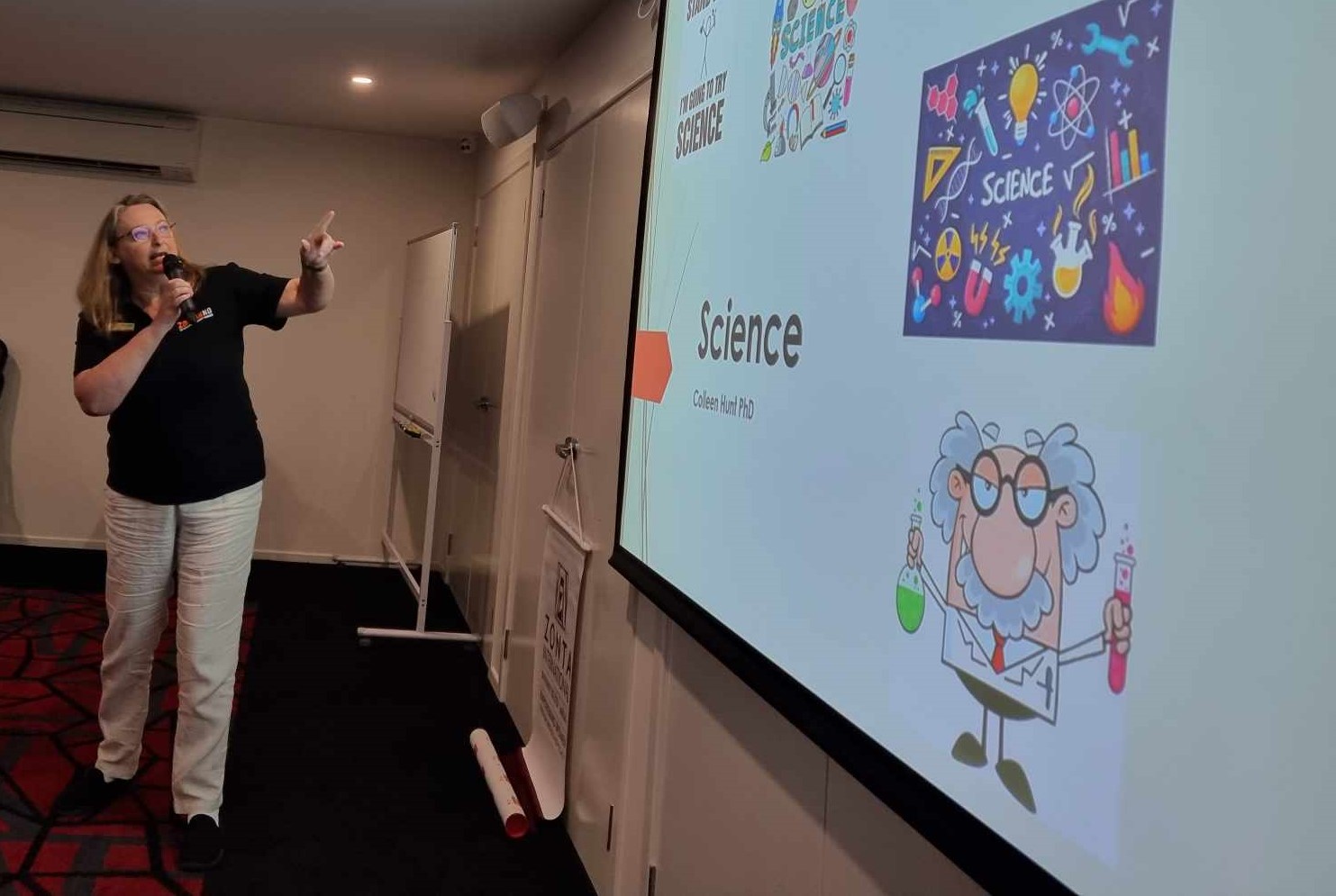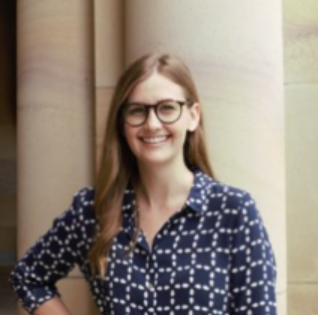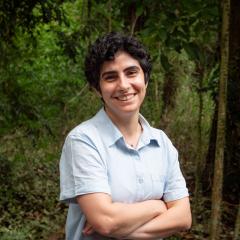Convincing the next generation to consider the career opportunities agriculture has to offer is the motivating factor for three QAAFI scientists, who are among this year’s Flying Scientists.
Biometrician Dr Colleen Hunt, Animal Genomics Research Fellow Dr Christie Warburton and Biotechnology advocate Dr Karen Massel have won coveted places with the program, which delivers STEM outreach to rural Queensland students, funded through the Department of Environment, Science and Innovation.

Dr Warburton said she plans to share her expertise in genetics and cattle breeding with students and their parents after being inspired by a Wonder of Science group at her son’s school.
“Even where we are, just two and a half hours away from Brisbane, the STEM programs are not great,” Dr Warburton said.
“Rural students think you have to move to the city and work in a lab to be a scientist, but that’s no longer the case.
“I work from home on my farm, and I want to show kids that – show them what a STEM career really looks like and get them thinking about the possibilities.
“I think with AI and digital applications moving into agriculture, there are a lot more people realising that higher education can help on the farm, even if it’s feeding your genetics into a data pipeline.”
Dr Hunt agrees that STEM outreach is needed in regional areas.
She plans to show that maths is not just fun but is about using your brain to solve problems.

“I analyse experiments in crop science as a biometrician at the Warwick research station,” she said.
“It’s probably something a lot of kids outside the city centres don’t realise.
“Agriculture is one of those sciences that is everything - we’ve got the biology, the chemistry and obviously I’m a mathematician first, then a biometrician – it’s all the sciences put together.
“Unfortunately, it can get a bad rap in school, but it’s more than the man with the Einstein hair in a lab holding a beaker.
“Science is everywhere and that’s my main passion - I’m so excited to be able to give students the chance to see science and to talk about science.”
Dr Karen Massel works in biotechnology, a field that can be controversial and said she wants to get people excited about it.
“People have a basic understanding of genetics but don’t realise how you can use it to benefit us.
“Biotechnology is often portrayed in the media as being used by ‘mad scientists’ but in reality we’re using these tools to create positive change.
“There is so much potential for innovation.

“In the past it was about profits, but now the focus is more on sustainability, about protecting the land.
“I plan to give some fun examples of how tweaking genetic pathways can produce a higher nutrition value – or the tomatoes in the UK that produce a compound to reduce Seasonal Affective Disorder.
“I want someone who is excited about it and isn’t in it for the money to be communicating to the next generation of students.”
Queensland Chief Scientist Professor Kerrie Wilson said research undertaken last year highlighted that many Queenslanders felt they were missing out on science events and activities.
“In fact, only one in ten people surveyed felt the number of science events and activities in their area was adequate,” Professor Wilson said.
“The Flying Scientists program offers fun and educational science activities, highlights the great science taking place across Queensland, and helps inspire young people in regional communities to pursue STEM subjects and careers,” she said.
The Flying Scientists program involves early to mid-career researchers who travel to regional Queensland centres alongside Young Science Ambassadors.
It has reached close to 11,000 people in places like Cairns, Charleville, Chinchilla, Emerald, Gladstone, Ipswich and Wondai in the past year.
In 2024, three of QAAFI’s inspiring scientists hope to spread interest in STEM careers even further.
Images are available via Dropbox.
Media: QAAFI Communications, Natalie MacGregor, n.macgregor@uq.edu.au, +61 409 135 651.
The Queensland Alliance for Agriculture and Food Innovation is a research institute at The University of Queensland supported by the Queensland Government via the Queensland Department of Agriculture and Fisheries.



